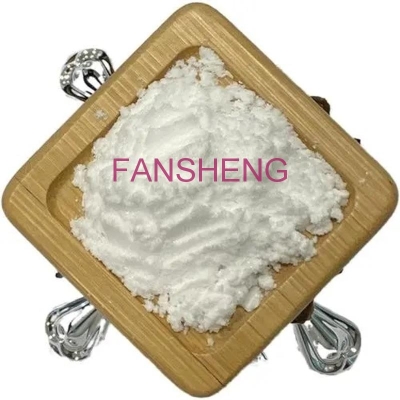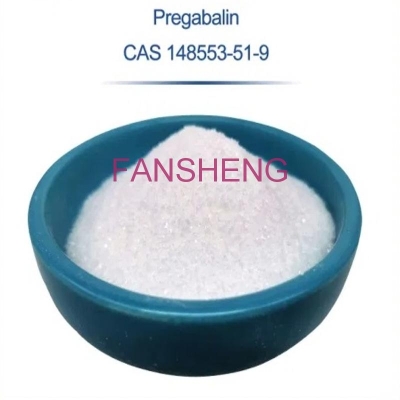-
Categories
-
Pharmaceutical Intermediates
-
Active Pharmaceutical Ingredients
-
Food Additives
- Industrial Coatings
- Agrochemicals
- Dyes and Pigments
- Surfactant
- Flavors and Fragrances
- Chemical Reagents
- Catalyst and Auxiliary
- Natural Products
- Inorganic Chemistry
-
Organic Chemistry
-
Biochemical Engineering
- Analytical Chemistry
- Cosmetic Ingredient
-
Pharmaceutical Intermediates
Promotion
ECHEMI Mall
Wholesale
Weekly Price
Exhibition
News
-
Trade Service
Vertigo is a movemental or positional illusion that distorts the spatial relationship between a person and the surrounding environment in the cerebral cortex, producing sensations
(1) Systemic vertigo
Systemic vertigo is the main cause of vertigo, which can be divided into peripheral vertigo and central vertigo according to the location of the lesion and the clinical
Peripheral vertigo: refers to the vertigo caused by lesions of the vestibular receptors and vestibular nerve transcranial outer segment (not out of the internal auditory tract), the feeling of vertigo is severe, the duration is short, common in Meniere's disease, benign episodes of positional vertigo, vestibular neuritis, labyrinth stroke and other diseases;
Central vertigo: refers to the vestibular nerve intracranial segment, vestibular nerve nucleus, supranuclear fibers, medial longitudinal tract, cerebellar and cerebral cortex lesions caused by vertigo, the feeling of vertigo may be mild, but the duration is long, common in the vertebro-basal artery insufficiency, brainstem infarction or bleeding and other diseases
(2) Non-systemic vertigo
Non-systemic vertigo is clinically presented with dizziness, unsteadiness in standing, usually without the external environment or a sense of rotation or sway, and rarely accompanied by nausea and vomiting, which is pseudo-vertigo
Common vertigo
1.
It is most commonly seen clinically and is often seen in the Department of Otolaryngology
2.
Clinical manifestations are intermittent recurrent episodes of vertigo, ranging from
3.
There is nystagmus without other neurologic signs and symptoms
There are other lesions that can also cause vertigo, all of which fall under the category of vertigo, such as: cerebellar hemorrhage, neck lesions, intracranial tumors, head trauma, drug or poison poisoning, inflammatory demyelinating diseases, etc
examine
(1) Examination of vestibular function in the clinic or bedside: including upright dumping test, in-situ stepping test, neck twist test, etc
(2) Nystagmus
(3) Electrograph of the eye shock
(4) Balance posture diagram
Head CT, MRI, etc.
Including blood pressure, electrocardiogram, biochemical examination, etc
The rapid development of medical technology has made the vestibular function detection more and more perfect, commonly used in clinical examination, such as electrography (ENG) and postural diagram (PG) examination, in recent years, video nystagmus (VNG), vestibular self-rotation test (VAT), video head pulse test (V-HIT), dynamic visual sensitivity test (DVA), subjective visual linear test, dynamic posture diagram and high-frequency rotation test and other emerging vestibular test technologies have been popularized in clinical application
Daily maintenance
1.
maintenance
The diet of patients with vertigo should be nutritious and fresh
2.
Spiritual recuperation
should be carried out.
The mental conditioning of patients with vertigo cannot be ignored
.
Mental stimuli such as depression and irritation can cause hyperactivity of the liver and yang or internal movement of liver wind, which can induce dizziness
.
Therefore, patients with vertigo should have a broad mind, an optimistic spirit, a comfortable mood, and emotional stability, which is very important
for preventing the onset of vertigo and reducing the number of attacks.
3.
Pay attention to rest and living
.
Excessive fatigue or lack of sleep is one
of the predisposing factors for vertigo.
Attention should be paid to rest
both during or after the onset of vertigo.
Bed rest
should be taken during the acute onset of vertigo.
If the vertigo caused by insufficient blood supply to the vertebral artery is aggravated when standing, the symptoms may be alleviated
when lying in bed.
Bed rest also prevents physical injury
caused by fainting.
It is important
for people with vertigo to get enough sleep.
Symptoms may lessen or disappear
after adequate sleep.
In addition, patients with vertigo should try to avoid turning
the head and neck back and forth from side to side.
If there is inner ear lesions, vertigo
can be induced by changes in the head position affecting the function of the vestibular system.
When the neck of patients with cervical spondylosis is rotated or tilted, the vertebral arteries can be compressed and blood circulation in the brain can be affected, causing insufficient blood supply to the brain and inducing vertigo
.
The stimulation of sound and light can also aggravate vertigo, and the former residence room should be quiet and the light should be dim
.
treat
1.
Etiological treatment
(1) Vestibular function is still reversible damaging vertigo This type of prognosis is better, such as benign paroxysmal positional vertigo, serous labyrinthitis and so on
.
Treatment should be directed at the cause, and once the cause is resolved, the vertigo disappears and vestibular function can be restored
.
(2) One-time damage to vestibular function irreversible vertigo signs such as purulent labyrinthitis, sudden deafness, vestibular neuronitis, etc.
, although the cause is removed, the labyrinth or vestibular function is completely destroyed, the vestibular function cannot be restored, and it is necessary to rely on the vestibular center to eliminate vertigo
.
(3) Fluctuating damage or irreversible damage to vestibular function of intractable etiology, such as arteriosclerosis or hypertension, vertigo caused by cervical spondylosis, etc.
, the treatment effect is poor
.
Surgical treatment may be used in patients who do not respond to conservative treatment
.
2.
Symptomatic treatment
(1) Conservative treatment during vertigo attacks Choose the most comfortable position, avoid sound and light stimulation, and relieve ideological concerns
.
(2) Vestibular nerve sedatives promethazine (fina root), diazepam (pacama) and so on
.
(3) Prevention of vomiting preparation atropine, scopolamine
.
(4) Diuretic and dehydration drugs Furosemide, mannitol, etc
.
(5) Vasodilator Ginkgo biloba leaf extract, salvia, Sichuan root, etc
.
(6) Hormones prednisone, dexamethasone
.
(7) VitaminSing vitamin C, vitamin E
.
(8) Oxygen inhalation is generally treated
with hyperbaric oxygen or 5% carbon dioxide mixed oxygen inhalation.
3.
Other treatments
The causes of vertigo are complex and involve a wide range of disciplines, but some vertigo disorders (such as benign paroxysmal positional vertigo) can be cured by reduction therapy, and the treatment effect is good
.
Surgical treatment of vertigo-like disorders must have a clearly localized diagnosis and indications
.







